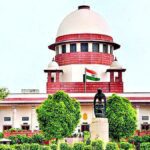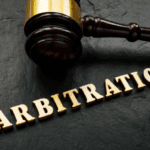In ruling on an appeal filed in Greymatter Entertainment Pvt. Ltd. v. Pro Sportify Pvt. Ltd., the National Company Law Appellate Tribunal (“NCLAT”), Principal Bench, made up of Justice Ashok Bhushan (Chairperson) and Ms. Shreesha Merla (Technical Member), determined that the IBC did not bar the Corporate Debtor from establishing defences of “Pre-existing dispute” or “No amount due” through its Reply to Section 9 application and supporting documents, even if it failed to respond to the Section 8 Demand Notice within 10 days of receipt.
Background Facts –
Pro Sportify Pvt. Ltd. (the “Corporate Debtor”) received services from Greymatter Entertainment Pvt. Ltd. (“Operational Creditor”) for the Live TV Production of Seasons 1-3 of the Pro Wrestling League (PWL) conducted in India in 2015. Considering this, the Parties entered into a Live Production Agreement on January 29, 2016. According to allegations, the Corporate Debtor did not pay the Operational Creditor for three seasons of PWL. On September 20, 2018, the “Corporate Debtor” received a Demand Notice from the Operational Creditor under Section 8 of the Insolvency and Bankruptcy Code, 2016 (“IBC”), requesting payment of Rs. 65,41,590. The notification received no response from the corporate debtor.
Thus, the Operational Creditor applied for the start of the Corporate Insolvency Resolution Process (“CIRP”) against the Corporate Debtor under Section 9 of the IBC. The application was denied by the adjudicating authority on July 27, 2021. At NCLAT, the Operational Creditor appealed the judgement from July 27, 2021. It was stated that once a Corporate Debtor receives the Demand Notice, it must bring to the awareness of Operational Creditor, either the ‘Existence of Dispute’ or the payment of outstanding ‘Operational Debt’. The Corporate Debtor cannot explicitly assert these defences in the Reply to Section 9 Application in the absence of a response to the Demand Notice. Thus, it was wrong for the adjudicating authority to deny the application.
Issue –
Does any provision of the Code preclude the “Corporate Debtor” from asserting claims of “Pre-Existing Dispute” or that the “debt” has been paid in their Reply to the Petition filed under Section 9 of the Code? Additionally, does the Adjudicating Authority have grounds to reject the Section 9 Application submitted by the Appellant herein if Section 8 Notice is not responded to?
Held –
The appeal was dismissed on the grounds that there were no evidences to prove that there was a pre-existing dispute or due payable amount. However, an application under section 9 as a response can be made considering pre-existing disputes or No amount due.
Analysis –
From Section 8 and Section 9 of the Indian Bankruptcy Code, it is indicated that in such case when Reply to Notice was not filed within 10 days, the ‘Corporate Debtor’ is precluded from raising the question of dispute or pleading that there or no amount ‘due and payable’, the ‘Corporate Debtor’ is not prevented from establishing by way of a Reply and relevant documents, any ‘Pre-Existing Dispute’ or paid ‘Operational Debt’. We base our decision on the ruling in M/s. Brandy Realty Services Ltd. vs. M/s. Sir John Bakeries India Pvt. Ltd., which was rendered by this tribunal. It is important to consider that though a Rejoinder has not been filed, it cannot be construed that the pleadings in the Reply have been admitted to by the Appellant. The failure to file Rejoinder cannot be treated as Admission of the pleadings in the Written Statement.
When discussing pre-existing disputes, the Supreme Court in the case of Mobilox Innovations Private Limited vs. Kirusa Software Pvt. Ltd. made clear that once the operational creditor has filed an application that is otherwise complete, the adjudicating authority must reject the application under Section 9(5)(2)(d) if the operational creditor has received notice of dispute or if there is a record of dispute in the information utility. The “presence” of a disagreement or the fact that a lawsuit or arbitration procedure pertaining to a dispute is ongoing between the parties must be brought to the operational creditor’s attention in this notice. So, all that has to be determined at this point by the adjudicating authority is whether there is a credible contention that calls for further examination and that the “contest” is neither a manifestly weak legal argument or an unsupported declaration of fact.
There was no agreement made for season 3 in the current case, and there is no documentation to support any claims that the respondent owed any money. Moreover, there is no communication in the record to support the claim that the appellant was entitled to payment of this specific sum of money due to some clause or promise. The ratio of ‘Mobilox Innovations Pvt. Ltd.’ (Supra) is relevant to the facts of this case as it is obvious from the information on record that there are ‘Claims’ and ‘Counter Claims’ with respect to the sums to be paid and the defence is not ‘spurious’ or ‘mere bluster’. Reiterating that only Season 2 of an Agreement has been entered into, we believe that the appellant/”Operational Creditor” has failed to meet its burden of establishing that there was a “Operational Debt” that was “due and payable” for the other seasons.



